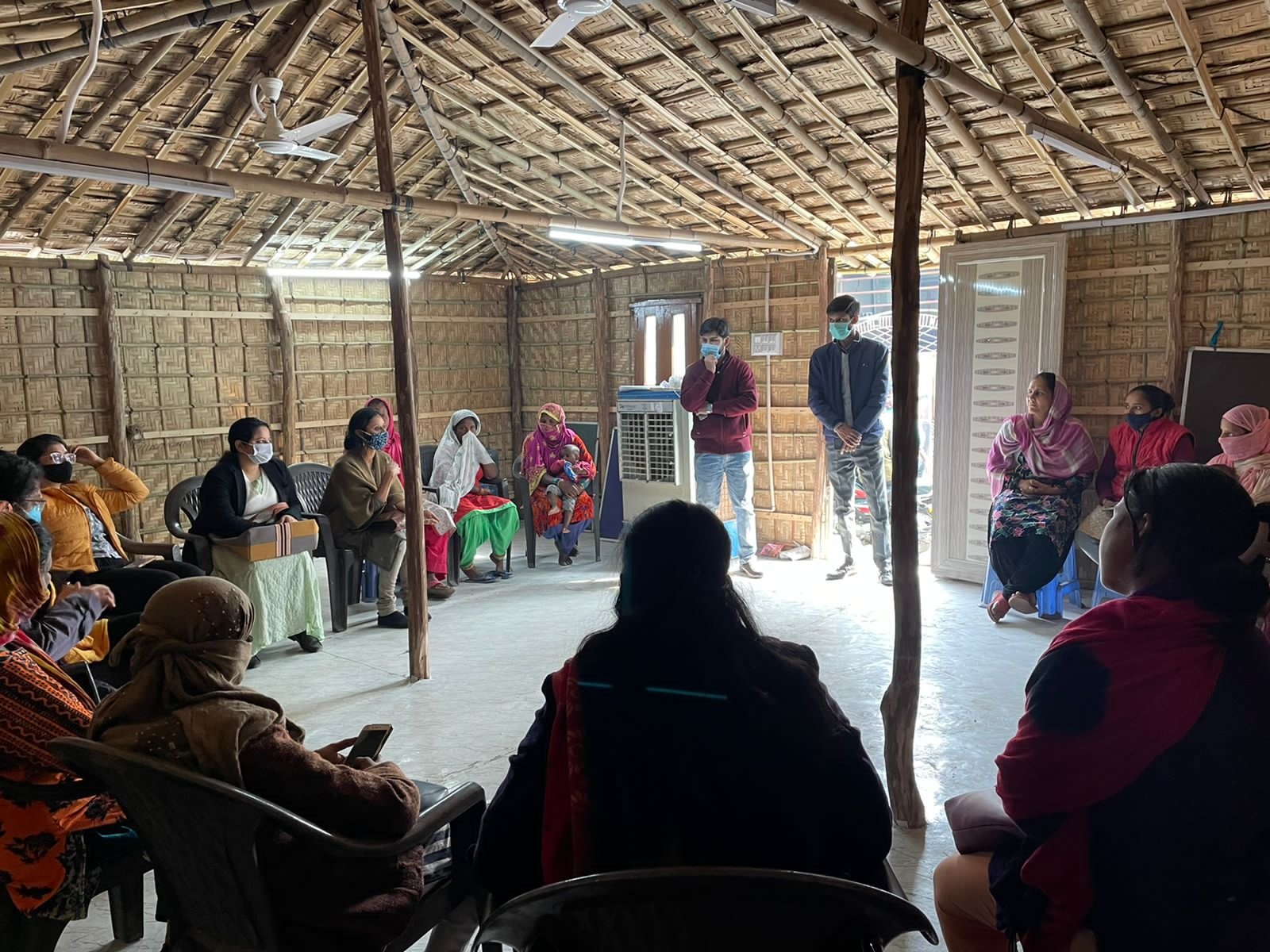Malik Faizan | March 31. 2022
TALIKA NETWORK: NGOs and Focal Point Persons

An unintended global consequence of the COVID-19 pandemic had been the growing cases of sexual and gender-based violence, particularly domestic violence, that were recorded. Termed as a 'shadow pandemic' by the United Nations, governments were called to incorporate a protectionist framework for women in their response to the pandemic. In India, the national lockdown announced in March 2020 meant that survivors suddenly found themselves in proximity with their abusers. Further, the collapse or inability of justice delivery systems to meet the needs of survivors meant that newer, innovative and remote interventions needed to be thought of.
As part of its 3-year SGBV project, M.A.P established a network of NGOs, Mahila Panchayats, ASHA /Anganwadi workers, Focal Point Persons as well as Para Legal Volunteers. The idea behind the Talika Network was to create a community of varied stakeholders that could form of referral system to provide SGBV survivors with assistance. At present, the network includes a community of over 300 organisations and persons working in diverse fields such as education, health, legal awareness etc. identified in the six settlements. 50 people from within the community also selected as Focal Point Persons to create awareness about SGBV issues and preventive laws.
This post seeks to expand on the inclusion of NGOs and Focal Point Persons within the network.
What is a Non-Governmental Organisation?
Non-governmental organisations are legally constituted organisations created by people that operate independently from any form of government. NGOs generally work in different fields of life, but are most commonly associated with the groups seeking some social change and improvement on social grounds.
Who are the Focal Point Persons?
During the needs assessment survey of migrants and forcibly displaced persons, we identified key individuals, whom we termed Focal point Persons, who demonstrated an awareness of their communities and a willingness to bring about some social change.
How were the NGOs and Focal Points in Talika Network identified?
As part of the SGBV Project, M.A.P identified community-based service providers, including like-minded NGOs, such as Mahila Panchayats, Health and Education related NGOs and Focal Point
Persons and organisations in the target settlements across Delhi-NCR—were needed to coordinate our ongoing efforts to counter SGBV. These were specifically identified while conducting the needs assessment survey in these locations and based on the interaction of the M.A.P team with the community.
Several meetings were held with organisations and Focal Point Persons where they were briefed about M.A.Ps area of work as well as the SGBV project. Based on their level of interest and the willingness to work for the community, the Network partners were shortlisted.
A consent form was also filled by them to formally join the Talika Network.
What is the objective of having NGOs and Focal Points in Talika Network?
M.A.P identified NGOs, Mahila Panchayats and Focal Point Persons (FPPs) in the grassroot level, that would seek to operate as a referral pathway to respond to SGBV incidents from the target population and strengthen the service delivery system at the community level.
The major objectives of having NGOs and Focal Points include the following:
To strengthen the existing support systems in the grass root level
To train, equip and build capacity of the members of the SGBV Support Network to cater to the unique needs of the target population;
To build an interdependent referral system that connects survivors/complainants with the relevant support systems;
Create a sustainable referral system that works through an App based interface as well as on the offline sphere;
To train, educate & sensitise the target population and SGBV Support Network on forms of SGBV and the relief mechanisms available;
To promote the integration of the migrant/displaced community within the mainstream;
To promote a community-driven and survivor-centric approach.
How have they contributed to the Talika Network?
The Focal Point Persons as part of Talika Network have played an important role in establishing a rapport with the people of these project locations as well as developing a physical presence of M.A.P in these communities.
Since, the FPPs are residing within the community, our experience shows that people , particularly women, find it easier to communicate and approach them without hesitation. A sense of trust and belongingness allows survivors to come forward and discuss their problems with these individuals. M.A.P has also provided smartphones to around 50 FPPs in each of the project locations to create awareness about the legal rights of women and referrals to service providers through the Talika App.
Similarly, the NGOs have a local presence in each of the locations and people are familiar with them and their work. Along with the NGOs, several joint meetings and training sessions were conducted within the community on SGBV related issues and legal trainings for the women. Since, the NGOs have diverse areas of work from education to health to legal outreach, it has also helped to build an interdependent referral system that connects survivors/complainants with the relevant support systems.


